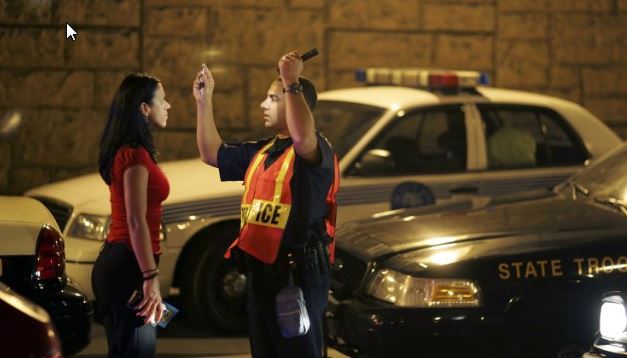DUI checkpoints may impact your drive home. Be sure you don’t drink and drive!
Summer and DUI Enforcement
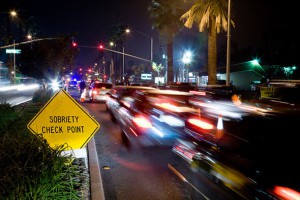 We are approaching summer and with the change in seasons to warmer weather, local law enforcement steps up DUI enforcement. This is especially true with checkpoints across Southern California.
We are approaching summer and with the change in seasons to warmer weather, local law enforcement steps up DUI enforcement. This is especially true with checkpoints across Southern California.
Overall, the various local and state law enforcement agencies make more than 100,000 DUI arrests each year. These occur in the five Southern California counties of Los Angeles, Orange County, San Diego, Riverside, and San Bernardino.
In 2014, law enforcement arrested 499 drivers for DUI in Los Angeles County over the Memorial Day weekend. The good news is that’s 30 fewer arrests than 2013.
One hundred Los Angeles County law enforcement agencies joined together last year. They took part in a DUI enforcement program during the three big summer holidays. The three are Memorial Day, Independence Day, and Labor Day. The program is the “Avoid the 100” campaign. The program includes sobriety checkpoints and increased roving DUI patrols to deter and catch drunk drivers.
Police love sobriety checkpoints.
Surprisingly, good defense lawyers love them too (more on that below). From the law enforcement side, checkpoints are an effective way to prevent accidents and make arrests. However, years of experience demonstrate that checkpoints are also thorny problems for police and prosecutors. Oftentimes these checkpoints create an environment for illegal searches and arrests.
The courts ruled that sobriety checkpoints don’t violate a motorist’s Fourth Amendment rights if they are conducted within certain criteria. Really though, it’s surprising how often these criteria fall to the wayside.
What should you do if you end up at a sobriety checkpoint?
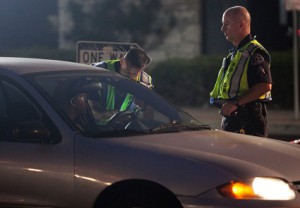 The first thing you should do in this situation is open your window slightly and wait for the law enforcement agent to ask you any questions. As with any routine stop, you are required to provide identifying information such as your name, address, driver’s license and registration. As a general rule, it’s good to have these things organized in advance.
The first thing you should do in this situation is open your window slightly and wait for the law enforcement agent to ask you any questions. As with any routine stop, you are required to provide identifying information such as your name, address, driver’s license and registration. As a general rule, it’s good to have these things organized in advance.
Should you be asked any further questions, you can politely decline to answer. You can say something like, “Officer, I don’t really approve of roadblocks and I do not care to discuss anything further.” If the officer persists in asking questions, you can ask for the return of your license and ask if you are free to leave.
It is imperative not to answer any questions beyond “name, rank and serial number” even if they appear harmless. Questions such about where you started driving, where you are headed, your eating and drinking patterns, when you last slept and how long, and a slew of other questions are all designed to gather incriminating evidence or eliminate possible defenses your lawyer could offer.
A recent U.S. Supreme Court case, Rodriguez vs. U.S., established that a prolonged detention – one that is extended past the reason for the initial stop – is illegal, and the evidence that is gathered afterwards can be suppressed. This can be vitally important at a sobriety checkpoint; unnecessary conversation between you and law enforcement can only serve to extend the encounter unnecessarily and possibly harm your legal interests. Remember, your right to remain silent ONLY helps you if you choose to exercise it! I can’t tell you the number of people I’ve met who, in trying to talk their way out of trouble, only talked themselves into more trouble.
What are officers are looking for at DUI checkpoints?
Officers are looking for impaired drivers. To do this they will use several different methods including, asking the driver questions, and observing the driver’s behavior. These signs include:
• Contradictory answers to questions
• Smell of alcohol or illegal substances
• Slurred speech
• Open bottles of alcohol in the vehicle
• Bloodshot or red-rimmed eyes
• Admission of drug or alcohol use.
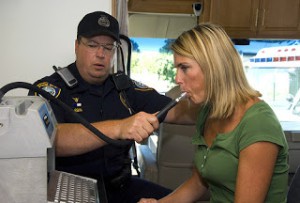 Many agencies use a portable breath test to determine the drivers’ blood alcohol content (BAC) levels. This is called a Preliminary Alcohol Screening Test (PAS). Even though it is a chemical test, it is legally considered to be a Field Sobriety Test. If you are over 21 and are not on probation for a previous DUI, this test is optional. In fact, before the officer administers a PAS test, they must read an admonition to you stating that the test is not mandatory. Because the technology shortcomings of the PAS machine make is susceptible to giving readings that are inaccurate and overly state true alcohol levels, if you’ve had any alcohol at all, especially recent consumption of alcohol, it is best NOT to take this test.
Many agencies use a portable breath test to determine the drivers’ blood alcohol content (BAC) levels. This is called a Preliminary Alcohol Screening Test (PAS). Even though it is a chemical test, it is legally considered to be a Field Sobriety Test. If you are over 21 and are not on probation for a previous DUI, this test is optional. In fact, before the officer administers a PAS test, they must read an admonition to you stating that the test is not mandatory. Because the technology shortcomings of the PAS machine make is susceptible to giving readings that are inaccurate and overly state true alcohol levels, if you’ve had any alcohol at all, especially recent consumption of alcohol, it is best NOT to take this test.
What Does an Experienced DUI Attorney Look for in DUI Checkpoints?
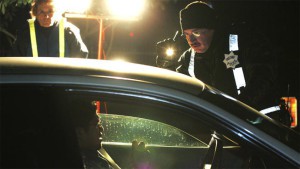 When conducting sobriety checkpoints, police must follow strict guidelines outlined by the U.S. Supreme Court in the landmark case Ingersoll vs. Palmer. If police do not follow the criteria from Ingersoll, the DUI roadblock isn’t lawful. Additionally, any evidence gathered during a drunk driving arrest is possibly not admissible in court.
When conducting sobriety checkpoints, police must follow strict guidelines outlined by the U.S. Supreme Court in the landmark case Ingersoll vs. Palmer. If police do not follow the criteria from Ingersoll, the DUI roadblock isn’t lawful. Additionally, any evidence gathered during a drunk driving arrest is possibly not admissible in court.
At The Kavinoky Law Firm, our top attorneys analyze all aspects of a checkpoint. They work tirelessly to determine whether there were discrepancies between the protocol set by the courts and the operation of the checkpoint. If police do not follow all of the necessary guidelines, and there was no probable cause for a stop, we will move to have all of the evidence that from the arrest set aside.
We have very positive results doing this for our clients; it’s shocking how many sobriety checkpoints do not comply with the legal safeguards.
One of the main reasons why a good defense lawyer is optimistic about a checkpoint case is that there is a strong case for defense. These cases do not provide one of the key aspects of the case that they usually point to in trying to secure a conviction. This is, a bad driving pattern. There is no driving pattern for someone who pulls into a checkpoint. Consequently, that is something that your lawyer can use to help you win your case.
The summer holidays are a great time to get outside and enjoy all that we love about Southern California. Let’s make sure we do it in a safe and sober way.
The Kavinoky Law Firm
About Darren Kavinoky and The Kavinoky Law Firm.
Darren Kavinoky receives recognition over and over for his commitment to clients and for being a top California defense lawyer. The Los Angeles Magazine repeatedly regards him as a Super Lawyer , and the American Trial Lawyers Association highlighted him as one of the Top 100 Trial Lawyers in California. Additionally, he is the legal analyst and special correspondent for the syndicated television program The Insider, and is a sought-after guest on shows that include Entertainment Tonight, Dr. Phil, NBC’s Today Show, and various programs on CNN and the Headline News Channel. Follow Darren on Twitter @DarrenKavinoky or www.DarrenKavinoky.com.
The Kavinoky Law Firm is a criminal defense firm with offices throughout California. The firm’s mission is to deliver peace of mind to every client. Our top criminal defense lawyers work to find the best possible resolution to your legal problem. Regardless of whether you have a charge of DUI, drugs, theft, domestic violence, assault, murder, or any other offense. For more on The Kavinoky Law Firm, visit www.NoCuffs.com or call 1.800.NoCuffs.



